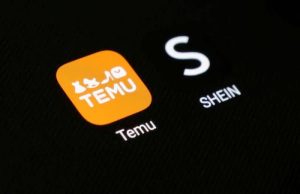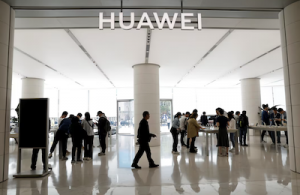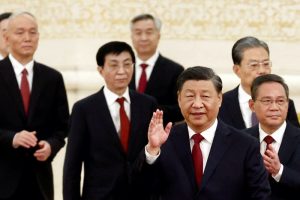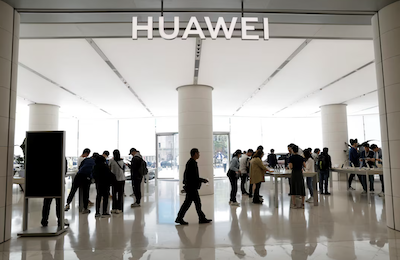Plans by the Biden administration to expand its rule on the export of chipmaking equipment to chipmakers in China will avoid key allies in the chip sector, but it will impact Israel and three countries in Asia, sources have said.
The new policy will expand what is known as the Foreign Direct Product rule – to bar about half a dozen Chinese fabs at the centre of China’s most sophisticated chipmaking efforts from receiving exports from many countries, according to one of the sources.
Shipments from allies that export key chipmaking equipment – such as Japan, the Netherlands and South Korea – will be excluded, limiting the impact of the rule, according to the sources, who were not authorised to speak to media and declined to be identified.
ALSO SEE: Solar Overcapacity Kills Projects, Fuels Bankruptcies In China
That means major chip equipment manufacturers such as ASML and Tokyo Electron will not be affected. Shares in both companies surged following the news.
But new policy is likely to affect companies in four countries – Israel, Taiwan, Singapore and Malaysia, two sources told Reuters, which said it could not determine which Chinese chip fabs would be impacted.
A spokesperson for the US Commerce Department, which oversees export controls, declined to comment.
Bid to restrain Chinese military advances
Aiming to impede supercomputing and AI breakthroughs that could benefit the Chinese military, the US imposed export controls on chips and chipmaking equipment for China in 2022 and 2023.
The new rule, currently in draft form, shows how Washington is seeking to keep up the pressure on China’s burgeoning semiconductor industry but without antagonizing allies.
The Foreign Direct Product rule stipulates that if a product is made using American technology, the US government has the power to stop it from being sold – including products made in a foreign country.
The rule has been used for several years to keep chips made abroad from Chinese tech giant Huawei, which re-invented itself after it struggled with the US restrictions, and is now at the centre of China’s advanced chip production and development.
Another part of this latest export control package will lower the amount of US content that determines when foreign items are subject to US control, sources said, adding that it closes a loophole in the Foreign Direct Product rule.
Equipment, for example, could be designated as falling under export controls simply because a chip containing US technology is incorporated into it, they said.
120 Chinese firms to face trade restrictions
The US also plans to add about 120 Chinese entities to its restricted trade list which will include a half dozen chipmaking factories known as fabs, plus toolmakers, providers of EDA (electronic design automation) software and related companies.
The planned new rule is only in draft form and could change, but the aim is to publish it in some form in August, the sources said.
Aside from Japan, the Netherlands and South Korea, the draft rule exempts over 30 other countries which are part of the same A:5 group.
The Commerce Department says on its website that it categorises countries “based on factors like diplomatic relationships and security concerns. These classifications help determine licensing requirements and simplify export control regulations, ensuring lawful and secure international trade.”
ASML shares jumped 7.2% in morning Amsterdam trade, while Tokyo Electron shares closed 7.4% higher. Other Japanese makers of chip-related equipment also made strong gains with Screen Holdings climbing 9% and Advantest up 4.5%.
The planned exemptions are a sign the US needs to be diplomatic when implementing restrictions.
“Effective export controls rely on multilateral buy-in,” said a separate US official who declined to be identified. “We continually work with like-minded countries to achieve our shared national security objectives.”
- Reuters with additional editing by Jim Pollard
ALSO SEE:
Beijing Funded Huawei Comeback With $6bn Support in 2023 – WSJ
China Tightens Focus on Tech Innovation, ‘New Productive Forces’
US-China Tensions See Tech Firms Offer More For TSMC Chips
ASML Has Sold One in Two Chipmaking Machines to China This Year
‘Four of Five Huawei AI Chips Defective’ as US Sanctions Bite
Beijing Slams US Plan to Review China’s Supply of Legacy Chips
China’s Third Chip Fund Gets $47 Billion to Boost Output
US Curbs Set Off Sales, Tech Boom for China Chip Equipment Firms
China’s AI Chip Firms Downgrade Designs to Keep Access to TSMC
SMIC, Huawei Big Winners as China Ramps Up Chip Funding
US Releases Detailed Rules For Export Curbs on AI Chips to China
























